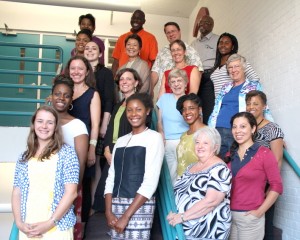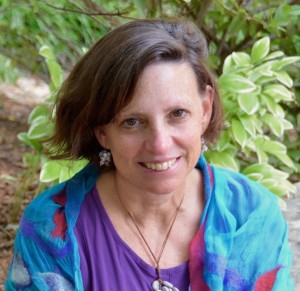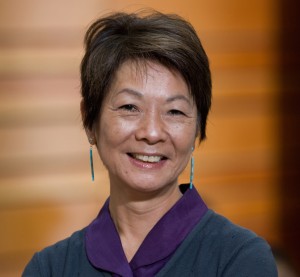Community-academic research partnership analyzes focus groups to examine race-specific inequities in cancer treatment
April 7, 2016
A recent publication co-authored by two researchers from the UNC Gillings School of Global Public Health shares lessons learned from a focus group analysis that examined inequities in cancer treatment.
Geni Eng, DrPH, professor, and Alexandra Lightfoot, EdD, research assistant professor, both teach in the Department of Health Behavior at the Gillings School. Together with members of the Greensboro Health Disparities Collaborative, a community-academic partnership, they wrote a paper describing collaborative work conducted for the Accountability for Cancer Care through Undoing Racism™ and Equity (ACCURE) project. ACCURE is a systems-change intervention focused on enhancing racial equity in the quality and completion of treatment for early-stage breast and lung cancer in African-American and white patients.
The full article, titled “Community-Guided Focus Group Analysis to Examine Cancer Disparities,” was published online March 31 by the journal Progress in Community Health Partnerships. All authors are members of the Greensboro Health Disparities Collaborative. Co-authors also include current and former masters and doctoral students and one postdoctoral scholar from the health behavior and maternal and child health departments at the Gillings School.
The paper describes the collaborative process researchers used to engage community and academic partners in conducting focus groups and then coding and analyzing the resulting data. This process informed two key components of the ACCURE intervention: a deep analysis of the system of care at two cancer centers and a healthcare equity education and training program for cancer center providers and staff.

The Greensboro Health Disparities Collaborative focuses on community-academic partnership. (Photo by Sarah Cottrell)
“It is rare that community members are full partners in qualitative analysis,” says Lightfoot. “The collaborative process we used was rich and fruitful and brought important, diverse perspectives to the interpretation of these key data. Given our process, it is fitting that the writing of the paper was led by a community partner, Dr. Jennifer Schaal.”
With a focus on participatory research, the community and academic partners engaged African-American and white survivors of breast and lung cancer in eight focus group discussions, which were organized by race and cancer type. Participants were asked to share critical incidents from their journeys through the cancer care system that either facilitated or hindered their willingness to continue treatment.
Based on the results of the focus groups, the researchers and community partners collaborated to develop activities and materials for ACCURE. The full article shares key lessons learned from their experience with the community-based process as well as tips for other researchers conducting similar work.
Gillings School of Global Public Health contact: David Pesci, director of communications, (919) 962-2600 or dpesci@unc.edu


